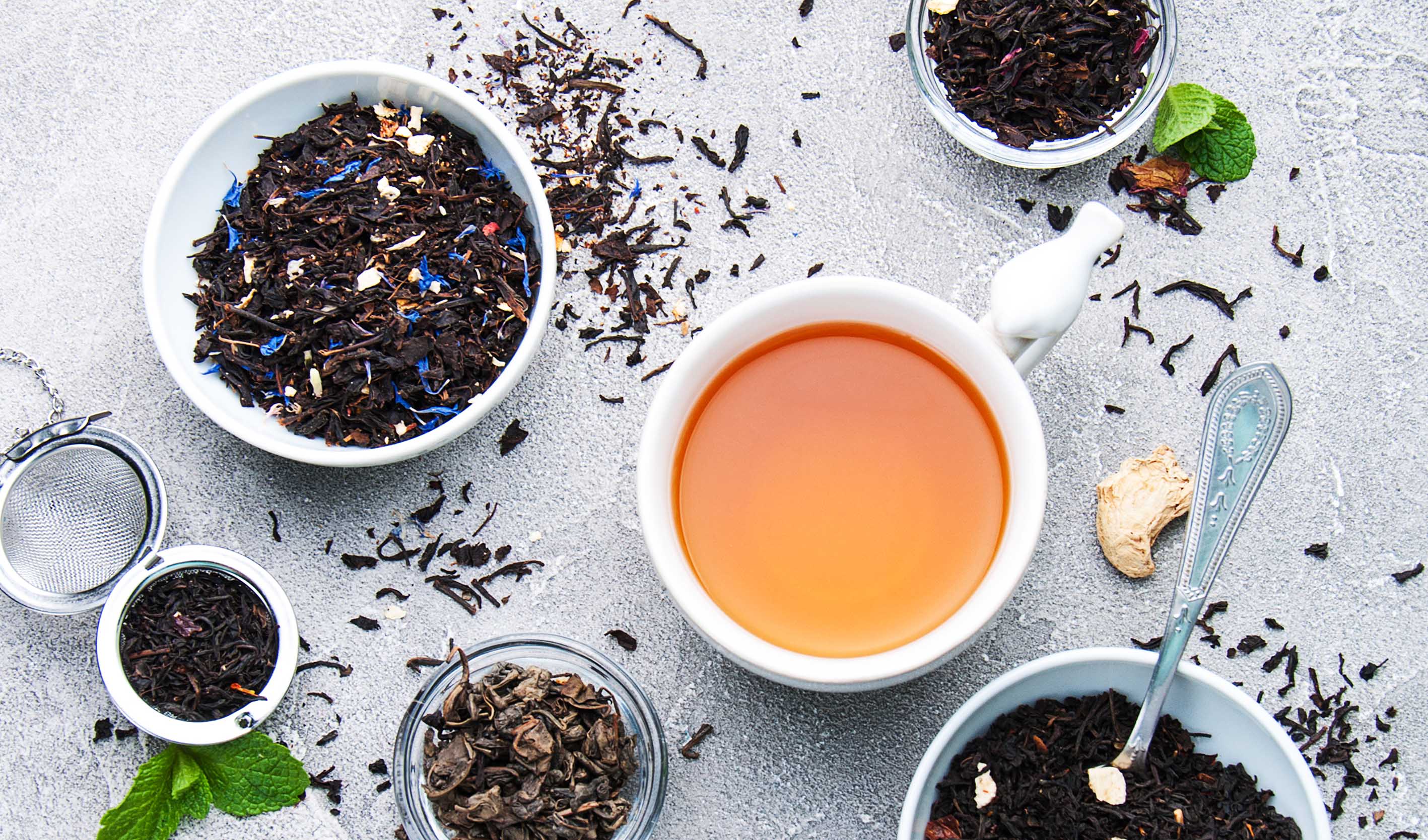Sri Lanka produces black tea (i.e. tea that has been grown in the Sri Lanka tea gardens, hand-plucked, withered, rolled, fermented, fired and sorted into grades), which is known for its aromatic, amber liquor and its rich, full, astringent flavour. However, not all black teas are alike. The secret of their diversity is encoded in obscure initials on the packaging that identifies the grade of leaf. When buying fresh Ceylon Tea from Sri Lanka, therefore, it is essential to understand these initials.
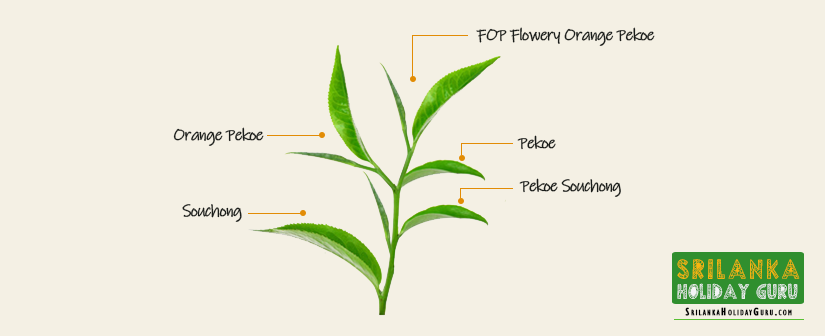
FOP means Flowery Orange Pekoe.
This refers to teas harvested early and extremely carefully, which are composed only of unopened buds and the first two leaves beneath the bud. The more tips there are, the more expensive the tea.
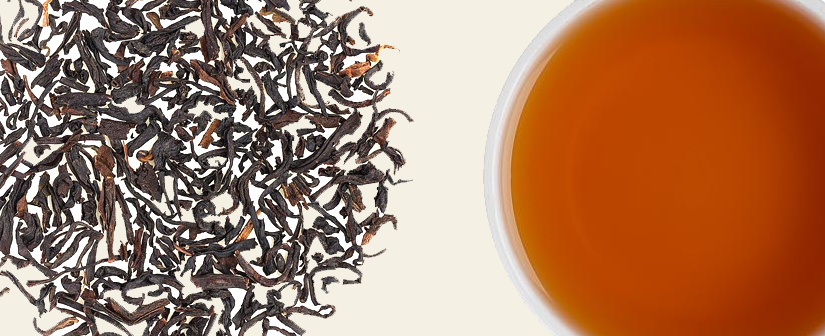
The word “pekoe” comes from the Chinese pak-ho, which alludes to the fine hair of the newborn infant and was applied to young tea buds still covered with light down. “Orange” has nothing to do with colour or flavour but refers to the Princes of Orange. The word thus conveys the idea of noble quality and was probably first used by Dutch merchants to give distinction to the product.
This is an afternoon tea, a mellow brew of great distinction.
OP stands for Orange Pekoe.
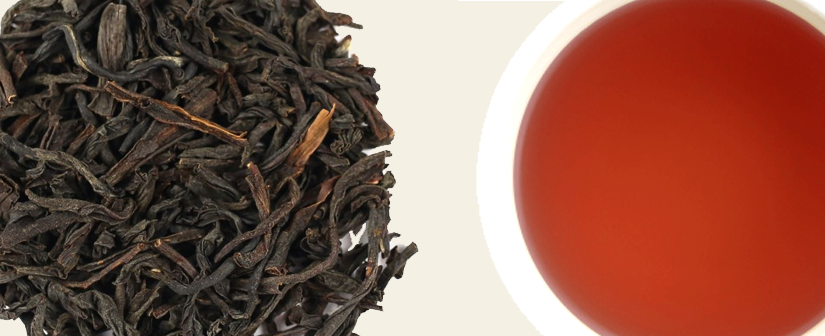
This is the product of an equally careful but later harvest. At this stage of growth, the tea no longer has light tips but the leaves are longer and more elegant. These leaves are rolled lengthwise during processing and measure from eight to fifteen millimetres.
This is an afternoon tea with a fruity flavour.
FP is Flowery Pekoe.
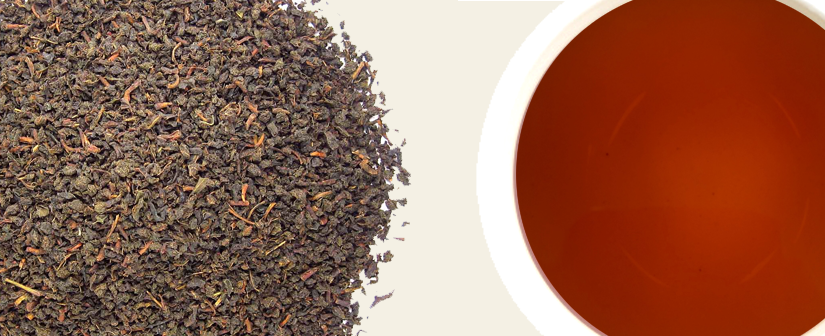
Flowery Pekoe is whole leaf black tea with the leaves rolled lengthwise. This is a well-balanced tea whose liquor is both full-bodied and pungent. This aromatic tea is ideal for both morning and afternoon.
BOP means Broken Orange Pekoe.
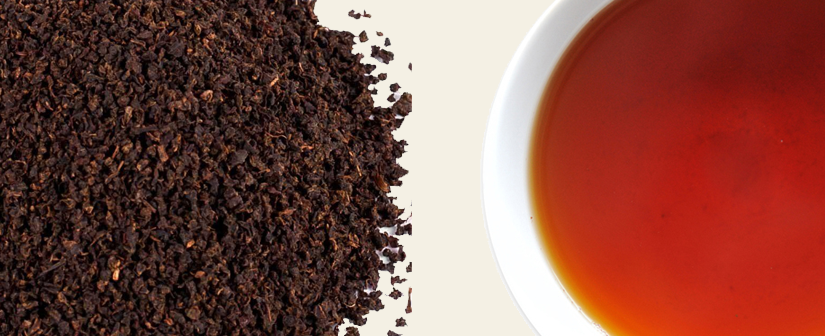
For the strength and tannic acid taste usually sought in an early morning cup of tea, a brew made from broken leaves is suitable. BOP is used in the typical blended teas found on the supermarket shelf. It is best drunk with milk. This is a morning tea with plenty of flavour and strength.
BOPF stands for Broken Orange Pekoe Fannings
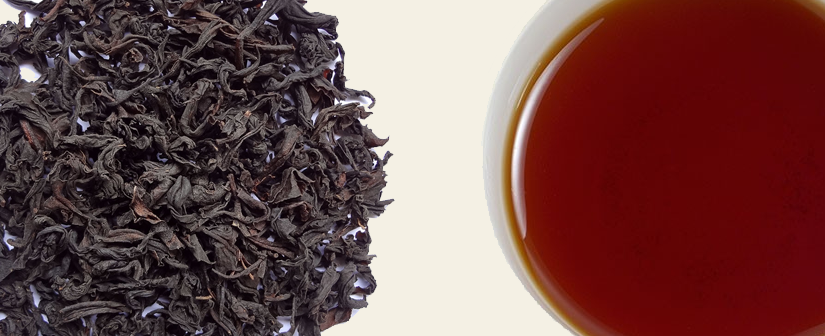
“Fannings” are crushed leaves that produce a strong beverage with plenty of body to drink with milk. This is a full-bodied morning and after-meal tea. Dust does not mean the sweepings from the tea factory floor, although it may resemble it because it is the smallest grade of loose leaf tea. It is popular in Sri Lanka because it yields a good strong tea with a kick since more particles of tea are used in per cup.
This is a good tea for a watchman on night duty.
The top three teas (whatever the brand) are made from different grades.
- Orange Pekoe (OP) is the most refined loose leaf tea yielding a light colour brew with a fine bouquet and a discreet flavour, perfect for a cuppa without milk or sugar.
- Broken Orange Pekoe (BOP) is a small leaf grade that packs more punch in the cup when enhanced with a little milk and sugar. This grade is used in traditional packet blends.
- Fannings (F) is a smaller grade and consequently produces a much stronger cup requiring milk and sugar to tame it; a tea ideal for reviving flagging spirits.
While you’re on holiday in Sri Lanka you will have a unique opportunity to drink Sri Lanka tea at source. Unfortunately, Sri Lankan hotels usually serve tea made from tea bags, but you can buy pure leaf tea in packets at local supermarkets to take home as gifts. Or on tours around the island, both in the hill country and the low-altitude tea gardens of the south, there are tea factories with a retail outlet featuring their own estate (ie: not blended) loose leaf tea which you can sample on the spot.


